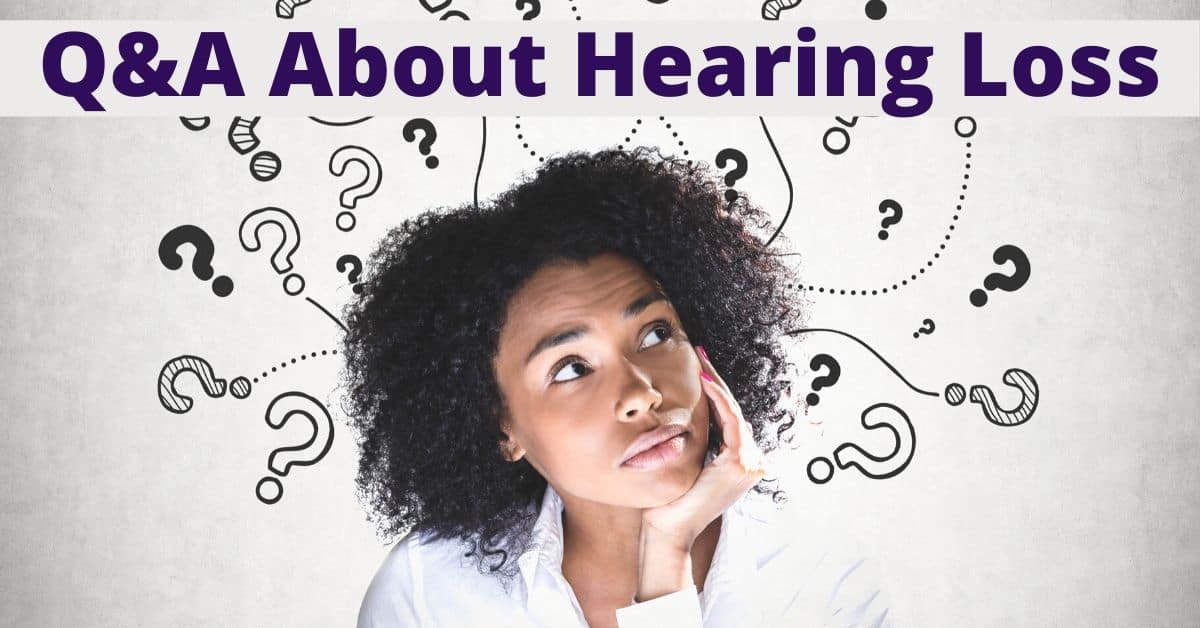
If you are coming to the realization that you might have hearing loss, you are certainly not alone. Many people are diagnosed with hearing loss every year, and even more have hearing loss that goes undiagnosed. If you have realized—either through a hearing test or your own experience—that you have hearing loss, you are likely to have some associated questions coming to mind. The following are some of the frequently asked questions about hearing loss as well as the answers provided by scientists and hearing health experts.
Are there any natural remedies for hearing loss, such as herbs or exercises I can do to improve my hearing?
The most common form of hearing loss comes from damage to the tiny hair-like cells of the inner ear called stereocilia. These cells are essential to picking up different types of sound and also to understand the subtle differences between units of speech. Although research is currently underway to determine if these cells can be regenerated through drug therapy, gene therapy, or stem-cell treatment, no solution has been found to the problem of permanent hearing damage. These researchers have also tested some of the potential “remedies” to be found online, including herbs, devices, and other natural treatments for hearing loss. Alas, none of these have turned out to be effective, so far.
If hearing loss is degenerative, will I eventually become completely deaf?
This common form of hearing loss indeed causes the cells of the inner ear to become permanently damaged. Over time, more and more of these hair-like cells can become damaged due to noise exposure and a lifetime of inundation by everyday sound. Although this process is common and affects most people who reach older age, most people do not get to the point of total deafness. With the exception of people who have encountered a severe noise event or who have been subjected to loud sound for a very long time, most people with hearing loss “plateau” at some point, not regaining hearing ability but not continuing to lose more of it.
Can I get a cochlear implant as an adult to treat my hearing loss?
Cochlear implants have been incredibly useful to bring hearing ability to some children who are born deaf. These devices are surgically inserted into the head and make it possible to resonate in a way that transmits hearing information to the brain. Although some adults are candidates for this type of intervention, it is generally reserved for those with profound hearing loss, whereby they are unable to hear much at all. If you have this degree of hearing loss and find that hearing aids are not helpful, then in rare cases an adult cochlear implant may be an option. Consult with your hearing health professional about treatment options if you have profound or total hearing loss.
If I have hearing loss only in one ear, can I save money by getting only one hearing aid?
Those who have hearing loss in only one ear—unilateral hearing loss—or much more hearing loss in one ear than the other—asymmetrical hearing loss—tend to be prescribed two hearing aids rather than one. Although the hearing loss might be worse in one ear than the other, there are several reasons to approach treatment with two ears. One of the most important things about having two hearing aids is to create a sense of spatial reasoning. Our brains use the relative volumes of sound in our two ears to judge where they are in proximity to the body. This function is also necessary to be able to locate a speaker or the source of sound.
Although your hearing may not be very bad in one ear, using two hearing aids can be helpful to restore these spatial abilities as well as to develop a sense of balance. Furthermore, researchers have found that the sound in the left ear tends to be more sensitive to music while the right ear is more attuned to speech. This remarkable ability of the brain to differentiate according to the type of sound is one of the reasons both ears should be in top shape. As always follow the guidance of your hearing health professional in any hearing-related matter.
Treating Hearing Loss
If you’ve got questions about hearing loss, we’ve got answers! Contact us today to learn more about how hearing loss treatment can benefit you.
